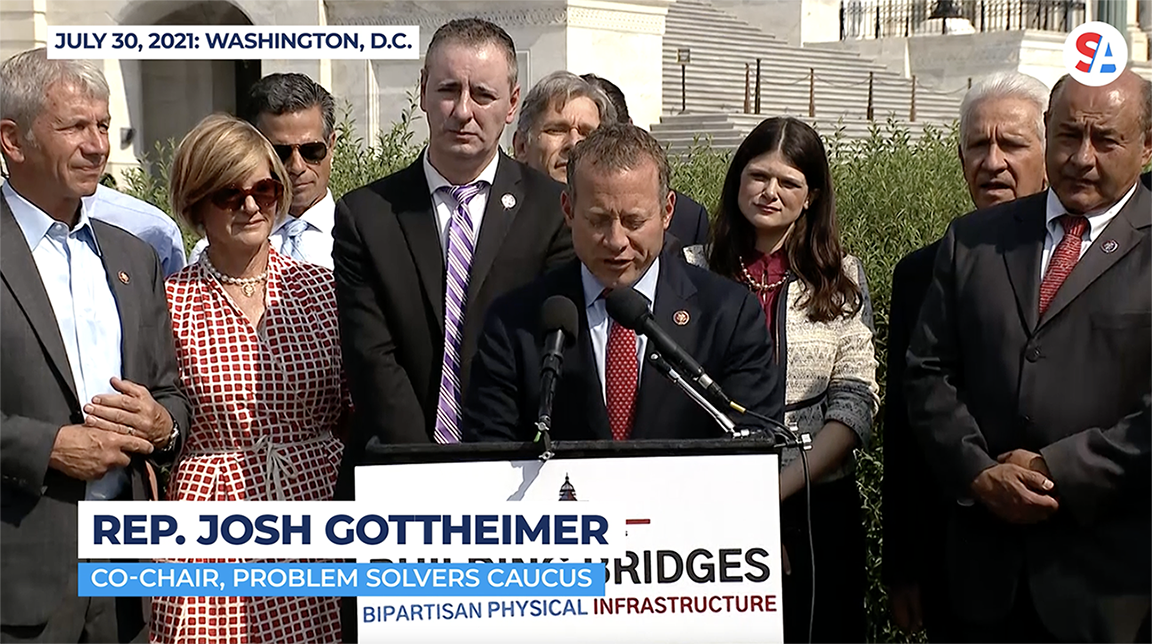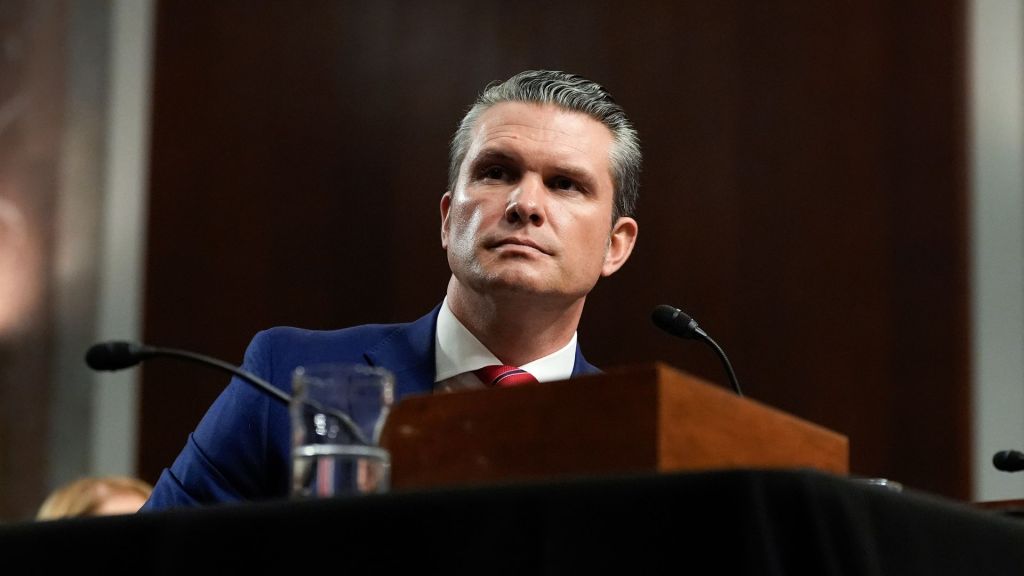
Rep. Josh Gottheimer, (D) New Jersey, Co-chair, Problem-Solvers Caucus: “I think we can all agree this week’s vote to move forward, the largest infrastructure investment in the country’s history, marked a huge win for the American people and for every single district in our country, including mine in northern New Jersey. From addressing lead in children’s drinking water to building tunnels, to repairing our crumbling roads, bridges and rails, to getting out more broadband and electric vehicles, this bipartisan infrastructure package will help create jobs, build our economy, address our climate, enable us to compete and deliver on what the problem solvers caucus really is all about. That indeed, we can govern together, that bipartisanship and civility are alive and well. And then when we work together, there’s no problem we can’t solve.”
“We’re not there yet, of course but I’m confident that when this bill gets sent to the House from the Senate and with the president and the White House firmly behind it, we will take it up quickly for a strong stand alone bipartisan vote, because that’s what the country wants.”
“This is the new model of how you govern, working not just in this one building, but across the street, and two chambers working together. Now it’s up to us to finish what we started and get this done for the American people.”
Sen. Joe Manchin, (D) West Virginia: “There are a few things to do in a very toxic environment, political toxic environment that bring us together. One is our military and support for our military and law enforcement officers across this country. The next is infrastructure. I’ve said this before. I’ve never seen a pothole with an R or D name on it. It’ll bust your tire, tear your car up, don’t care who you are. And if you’re on the wrong bridge at the wrong time, you’re in danger. So these are things that people want. This is what America wants.”
Sen. Bill Cassidy, (R) Louisiana: “Until it passes, we’re not spiking. But I can say that if what we vote on looks like what we have agreed upon, it will pass.”
Sen. John Tester, (D) Montana: “We’re not spiking the ball. We’ve got a lot of work to do. We’ve got a lot of work to do. But I’m confident we’re going to get this through the Senate and then it’s going to come over here and these guys and these guys are going to get it done over here.”
Sen. Lisa Murkowski, (R) Alaska: “We’re working on outcomes that the American people want, they want to know that we’re going to be able to deliver something.”










